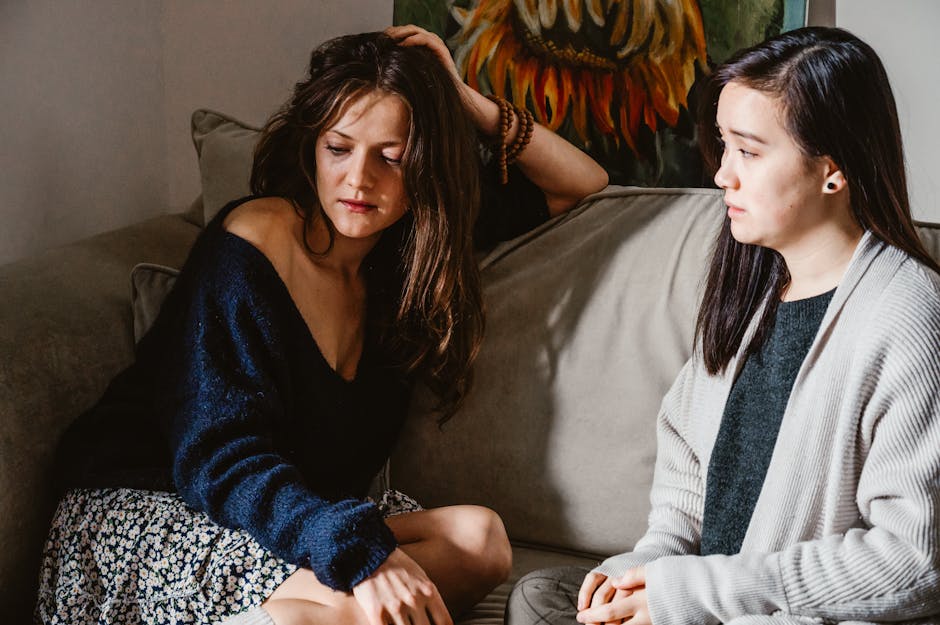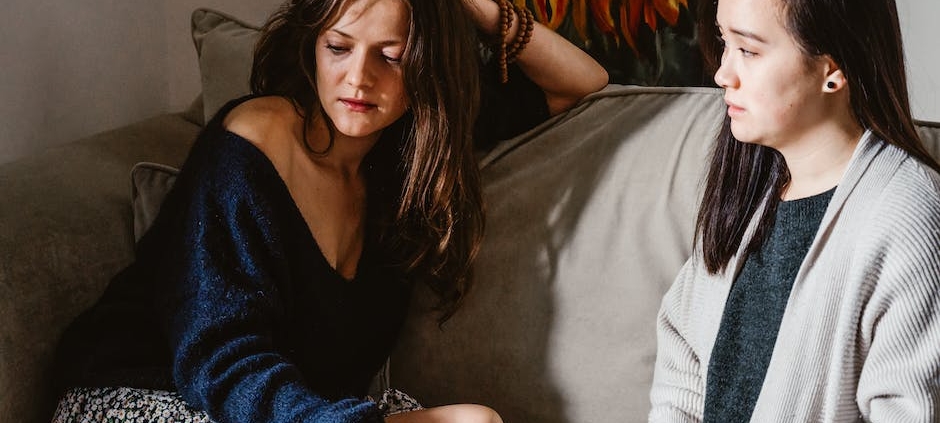Understanding Addiction and Its Impact on Relationships
Addiction is like a thief, it sneaks into people’s lives and robs them of connections, trust, and joy. When one person wrestles with addiction, it’s not just their battle; it becomes a struggle for their loved ones too. Addiction can lead to secrets, broken promises, and lies, damaging relationships and breeding mistrust. The emotional roller coaster often leaves partners and family members feeling angry, hurt, and confused. They might battle a sense of betrayal or develop trust issues. This isn’t just about substance abuse; it can also be habits like gambling or even technology overuse. Supporting someone through their fight with addiction is tough, it requires patience and understanding. Healing is possible, though, when people come together, share their pain, and work towards rebuilding their bonds with honesty and empathy.

The Role of Support Systems in Recovery
When tackling addiction, having a robust support system can be as critical as the air you breathe. It’s all about the people who’ve got your back when the going gets rough. Think about it like a team sport – you need people to pass you the ball, defend you, and cheer you from the stands. That’s your support system in recovery – friends, family, healthcare pros, and maybe folks who’ve walked the same rocky path and made it through. They’re there to offer a shoulder to lean on, wisdom from their own battles, and a push in the right direction when you’re feeling stuck. With a solid crew in your corner, you’re not facing your demons alone. You’ve got an army to back you up, and that can make all the difference in the world. Studies show those with strong support have better success rates in staying clean—power in numbers, right? So, build your squad, lean on them, and together, you can turn the tide against addiction.
Introduction to Healing Together as a Couple
Healing as a couple sounds tough, right? But it’s about tackling problems head-on, as a team. You’re hitched to each other for the good and the bad, after all. Imagine two people, they’ve been through the wringer with addiction. Now, they’re ready to mend fences and get back on track. That’s what healing together is all about. It’s rolling up your sleeves and saying, “We got this. We can beat the odds.” It’s not just about kicking a habit; it’s relearning how to trust, how to talk, and how to grow love that maybe took a hit. It’s not child’s play; it takes guts and grit. You’ll have to face some ugly truths, but you’ll also build a bond that’s stronger than ever. That’s the power of pulling together to heal. You’re not alone. This is about both of you, healing every scar as a couple, building a fortress against whatever comes next.
Communication: A Vital Tool for Healing Together
Open up and talk—it’s that simple and that tough. Honest communication is the bedrock of healing in a relationship rocked by addiction. It’s about laying your cards on the table, scars and fears included. Picture this: You’re striving to understand and be understood, listening and being heard. This ain’t just chit-chat; it’s the real, raw, and often uncomfortable path to patching things up. You’ve got to ditch the blame game, aim for empathy, and remember, it’s a two-way street. When both get real and stay present—even when the going gets tough—you build trust. And trust, that’s the gold you’re digging for here—the healing kind that turns a mess into a masterpiece of connection. Keep it simple, keep it honest, keep it coming. That’s your way through.
Rebuilding Trust Through Shared Experiences
Healing fractured trust is a tough challenge in any relationship, but it’s not impossible. Shared experiences are a critical ingredient in this process. When both partners engage in activities together, be it a hike or cooking class, they create positive memories that contribute to a foundation of renewed trust. Each moment spent together, each laugh and supportive gesture, chips away at the wall of doubt and hurt. It shows a commitment to one another and to the healing journey. Open communication during these shared experiences is vital. It invites understanding and empathy, allowing partners to express fears or concerns in a safe space. As trust is rebuilt piece by piece, the bond strengthens, paving the way for a healthier, more connected relationship. Remember, trust takes time to mend, so be patient with each other and celebrate the small victories on your road to recovery.
The Science Behind Healing Together: Benefits and Evidence
Human connection does remarkable things to our brains—especially when healing from addiction. When we join forces to overcome challenges, it’s not just moral support; it’s a biological upgrade to our system. Here’s how it works: Sharing struggles can reduce stress, and this isn’t just a feeling. Studies have shown that social support can lead to lower levels of cortisol—the stress hormone. It strengthens our resilience, our ability to bounce back from tough times. Companionship during recovery offers not only comfort but can also improve our chances of long-term success. It creates accountability, so sticking to the healing path becomes a team effort, not a solo mission. This togetherness also pumps up oxytocin, often called the “love hormone,” which can lower anxiety and cravings. MRI scans of the brain even reveal that strong relationships can lead to actual structural changes in the brain, fostering healthier thought patterns. It’s science with a heart—being together when healing from addiction can amplify recovery, making the road less lonely and the victories more shared.
Therapy and Counseling Options for Couples
When couples face the harsh road of addiction, navigating the path to recovery can feel daunting. But therapy and counseling offer a bridge to healing, a chance to reconnect. Committed couples might explore various support systems, such as relationship counseling or couples therapy. These sessions give a safe space to tackle issues head-on and forge understanding. Some will opt for group therapy, where the shared experiences of others can shine a light on their own journey, offering perspective and companionship. Others may find solace in individual therapy before coming together to mend the bond. No matter the route, the goal is clear: healing together, strengthening the connection, and rediscovering trust and intimacy in the relationship.
Establishing New Routines and Rituals for Connection
Building new routines and rituals together creates a strong fabric for your relationship. Think of it as weaving a net that’ll catch you both when life throws its curveballs. Start small by picking one daily habit you’ll do together – maybe it’s a morning coffee or an evening walk. As these moments become a part of your everyday life, they turn into the glue that holds you tighter together. Then, introduce weekly routines, like a Sunday meal prep or a Friday movie night, setting aside those sacred blocks of time for each other. Amidst the hustle, these rituals become your relationship’s heartbeat, steady and life-sustaining, connecting you deeply without needing grand gestures or words. Remember, it’s about the consistent, small acts that build trust and signal to each other, “We’re in this together.”
Stories of Success: Healing Together in Action
Real people, real stories. That’s what hits home when it comes to battling addiction within the fabric of relationships. Every victory against addiction rewrites a life narrative, turning isolation into solidarity. Imagine couples who’ve weathered the storm of substance abuse, working as a unit towards sobriety. They share tales where dark days gave way to dawn because they chose not to walk alone. A partner recovering from addiction, backed by the unyielding support of their significant other, epitomizes the power of togetherness. It’s seeing rehabilitation centers where group therapy sessions aren’t just about sharing struggles — they’re about building a community of hope. Witness friendships born from mutual understanding, where one’s battle scars become a beacon for another’s healing journey. These success stories don’t just spotlight individuals; they underscore the collective resilience that comes from healing as a circle, a network, a unified front against the common foe of addiction.
Conclusion: The Ongoing Journey of Healing Together
Healing from addiction isn’t a sprint; it’s a marathon, one that takes love, patience, and continuous commitment from everyone involved. Relationships themselves can blossom into sources of strength as both individuals learn, grow, and support each other. Remember, setbacks are a normal part of this journey. It doesn’t mean failure; it means getting up together, dusting off, and moving forward, stronger each time. The path to recovery weaves through open communication, mutual respect, and a deepened understanding that every day is a new chance to strengthen the bond. Keep walking the path, side by side, and witness how the power of healing together can transform lives.



